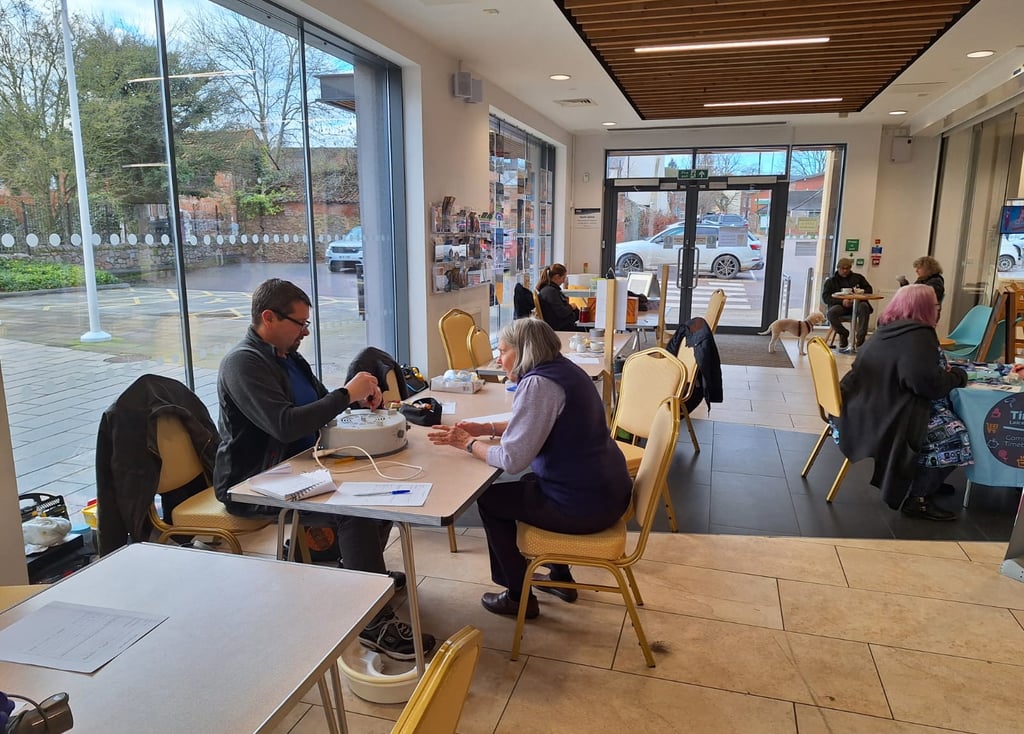Set up your own Repair Café


At The Fix it Group 23 we share our experience and resources to organisations across Leicestershire seeking to establish and run their own Repair Cafés. Our experienced management committee are happy to share with organisations everything they will need to know including organisation structure, event management, health and safety, policy creation, financial considerations, volunteer recruitment and insurance requirements. By sharing our experience, the Fix it Group 23 hope to ease the path to success.
Below you should find all the information you need as well as the link to our editable recourses. However, if you wish to discuss anything in more detail or have any questions, please email thefixitgroup23@gmail.com.
Initial Funding
It is likely to cost approximately £500 for insurance and a Portable Appliance Tester
Forming the organisation
You will need to find 3 trustees for your organisation: chair, treasurer, and secretary.
Select a unique and available name, and check the company's house for listed organisations with the same name. If you select a name that is already in use, they could require you to change it in the future.
You are now ready to fill out the Constitution document.
Once completed and signed, your organisation will be legally recognised when applying for insurance and banking. This constitution is for a community interest organisation. This is done to keep things simple, if you have a revenue greater than £5000/year you will need to register with the charities commission and companies house, you will also need to submit accounts annually. We recommend ensuring you keep your revenue below this threshold to keep your admin manageable.
As part of your mandate to operate, you will need to make the annual tracking data available for public scrutiny at the AGM, which will be called with at least two weeks' notice.
Banking facilities
Banking takes a couple of months to set up, so start early in the life of your organisation.
Normally at least two people will be required to operate the banking, and all trustees will need to be recorded on the application.
An internet-based provider may be quicker and more suitable for free banking.
Sum Up offer free current accounts and free online activities. You can also generate QR codes for donations and link them to any account for free.
Budget tracking for AGM reporting
Complete the budget tracking sheet in the finance folder to track your cash flow. There is a subdirectory for tracking receipts for purchases; we recommend archiving that annually into another folder.
Insurance requirements to reduce premiums
Before you apply for insurance, you should complete a Health and Safety policy and nominate an H&S officer(s) to be responsible for risk-assessing activities and ensuring risk mitigation is complied with. The H&S directory contains a set of sample documents for you to modify.
Blank H&S policy and Risk Assessments are included in the H&S folder for you to modify.
As part of this, you will need to establish the capabilities of your repairers—DIYers and professionals. Are people qualified and safe to fix mains voltage items? How will you assess this, and who could assess this for you? You will need a good number of skills. Inevitably, the time-consuming repairs will be electrical and electronic. Make sure you find at least two capable people to do this.
You will need to set up a Portable Appliance Testing capability to check the state of equipment when it is brought in and before it is handed back. There are free online courses, but you will likely need to buy a Tester unit very quickly.
Insurance purchase
Insurance is there to protect trustees, volunteers, members of the public, and the venue where you are providing events. Naturesave has provided very competitive quotes and is ethically run. Give yourself a chance to expand your volunteer numbers.
With the H&S documents in place, your premiums should be reduced.
When running sessions, there are a few more things to consider
In the core Docs folder, there is a set of Ts&Cs which you can use by adding your name. These are written in easy-to-understand English and are there to ensure people bringing products to a repair café are aware that there is a risk they will not be fixed and may even end up in worse conditions than they came in.
Getting a booking form completed for every item to be considered for repair is a must so that you have a record they have read the Ts&Cs and are aware of the risks to their goods. They are also a great way to track the numbers and types of repairs undertaken. They must be handled in line with GPDR guidelines and disposed of securely before 3 years is up.
Also included is a WEEE disposal guide for people when their items can’t be repaired. It is often a requirement of the venue that all items are removed at the end of the session; this usually includes broken items and waste.
You will quickly need some means to manage the volume of items being brought into the event. It is easy for the repair volunteers to be overwhelmed with items. As such, having 1 or 2 people act as front of house and set waiting time expectations is very helpful.
You could consider running a triage system or online booking system, depending on what you believe is best for your events as they grow.
Marketing
Facebook, Instagram, local noticeboards, and shop notice boards are all great places to advertise what you will be offering and keep people up to date with event timings and items you will and won’t repair. Consider having a means for people to message someone to ask questions. A nominated individual to coordinate this is a fantastic bonus for any repair café.
Contact
Email us at thefixitgroup23@gmail.com and we’ll be back to you before you know it!
Follow us on social media:




